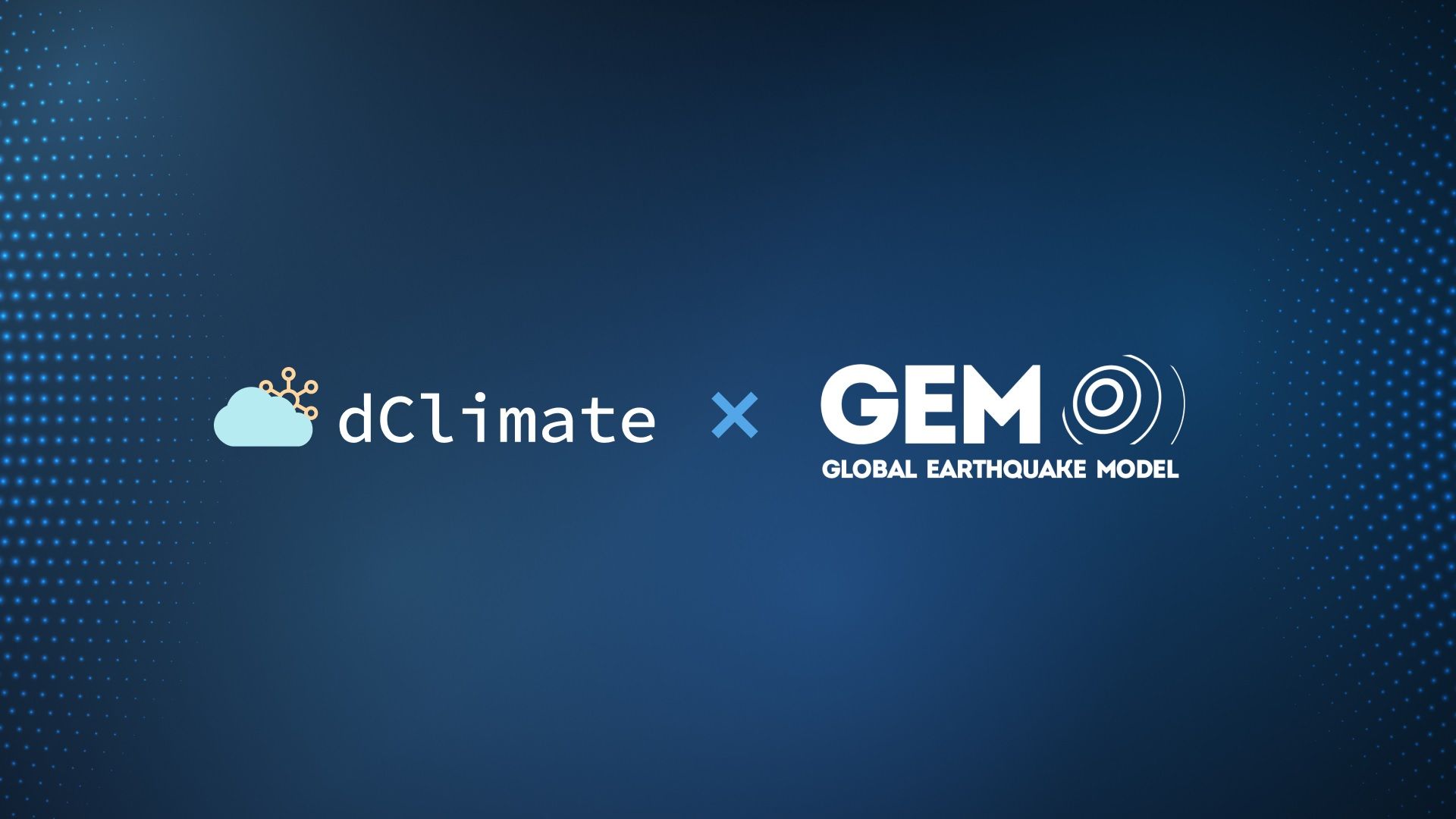dClimate Partners with Global Earthquake Model to Advance Transparent Earthquake Risk Assessment
Accurate climate data and risk models regarding earthquakes are important to improve seismic hazard awareness and can help to save lives.

The dClimate Data Marketplace expands with Seismic Hazard Data and Risk Assessment Tools for Earthquakes
dClimate, a leading decentralized climate information ecosystem, today announced its latest partnership with Global Earthquake Model (GEM), a non-profit public-private partnership dedicated to advancing a global collaborative effort to create scientific and top-notch resources for transparent earthquake risk assessment.
The partnership between GEM and dClimate to incorporate earthquake-related data into the dClimate ecosystem is particularly significant given recent events such as the devastating earthquake in Turkey and surrounding areas, which have had a profound impact on communities. As part of this partnership, GEM will make its GEM Simplified Global Seismic Hazard Map available on the dClimate marketplace. This will provide users with more comprehensive insights into earthquake hazard risks at individual locations, enabling better risk awareness and communication.
“This partnership with GEM marks an important milestone for dClimate as we expand our marketplace and ecosystem to provide users with valuable insights into earthquake risk and facilitate informed decision-making around the world,” said Osho Jha, co-founder and CEO of dClimate. “By integrating GEM's Simplified Global Seismic Hazard Map, we are taking a significant step towards creating a more sustainable future and building more resilient communities."
The GEM Global Seismic Hazard Map (GSHM) was created by collating maps computed using national and regional probabilistic seismic hazard models developed by various institutions and projects, and by GEM Foundation scientists. The OpenQuake Engine, an open-source seismic hazard and risk calculation software developed principally by the GEM Foundation, was used to calculate the hazard values. A smoothing methodology was applied to homogenize hazard values along the model borders. The Global Simplified Earthquake Hazard Map is a simplified version of the GSHM intended for applications where quantitative analysis is not required. With the availability of the hazard maps in a digital and interactive setting via the dClimate marketplace, users such as businesses and governments can identify potential earthquake related hazards for decision making and infrastructure developments.
"dClimate’s easy-access and data-driven approach to help communities worldwide achieve resilience to climate change and other natural hazards such as earthquakes align with GEM’s pillars for understanding and reducing risk. With this partnership, the expanded availability of GEM’s Global Simplified Earthquake Hazard map through dClimate’s platform can help private and public institutions identify potential earthquake related hazards to properly mitigate the consequences of seismic events,” said John Schneider, GEM’s Secretary General.
GEM joins dClimate’s ecosystem of data providers, each providing a unique type of dataset and/or tool enabling the community to build actionable solutions using data from leading experts. With a collection of data on different climate perils, dClimate is creating a global network and repository of data that has multiple use cases across a variety of sectors such as insurance, financial services, agriculture, energy,
About dClimate
dClimate is a chain-agnostic decentralized climate information ecosystem. dClimate makes it easy for businesses and builders to find, access, and utilize essential information about our planet to better understand how weather and climate impacts our communities and build data-driven technology solutions for helping communities achieve climate resilience in the 21st century. The dClimate network solves key issues around access, availability, and accountability in the climate data ecosystem with the world’s first decentralized, open marketplace for participants to get and share climate data.
The network also enables an open ecosystem of climate resilience applications like parametric insurance, advanced analytics and models, and tooling to be built on top of the data layer. dClimate is pioneering data infrastructure solutions for scaling global carbon markets, incentivizing regenerative agriculture practices, and bringing increased efficiency to industries affected by climate risk.
- Visit our Website, Blog, and REST API
- Read the dClimate Whitepaper
- Join the Community: Twitter | Discord | Telegram | LinkedIn | YouTube
About GEM
GEM was formed in 2009 as a non-profit foundation in Pavia, Italy, funded through a public-private sponsorship with the vision to create a world that is resilient to earthquakes and other natural hazards. GEM is funded by public and private institutions globally, and is advised by many international organizations.
GEM is also recognized by the UN as an NGO, operating under UN guidelines for a humanitarian organization. GEM’s mission is to become one of the world’s most complete sources of risk resources and a globally accepted standard for earthquake risk assessment. Further, GEM aims to ensure that its products are applied broadly in disaster risk management and reduction, and its services are available and accessible to public, private and academic institutions worldwide.
For more information about GEM:

